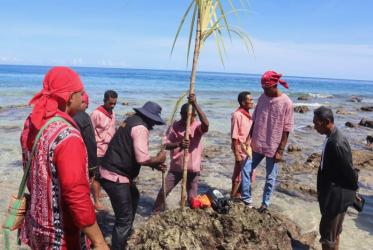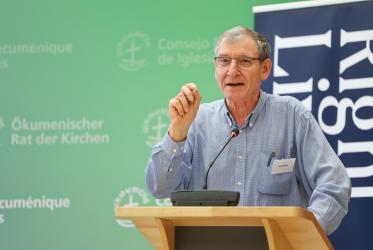Two weeks after Hurricane Eta struck, Nicaragua and Honduras are now bracing for another massive storm, Hurricane Iota. Eta killed at least 120 people in flash floods and mudslides. By 15 November, ahead of Iota’s landfall, some 63,500 people had been evacuated in northern Honduras, and 1,500 people in Nicaragua had been moved from low-lying areas of the country's northeast. Carlos Rauda, a regional officer with ACT Alliance, offers a glimpse of this unfolding situation, and the important role of churches.
17 November 2020











